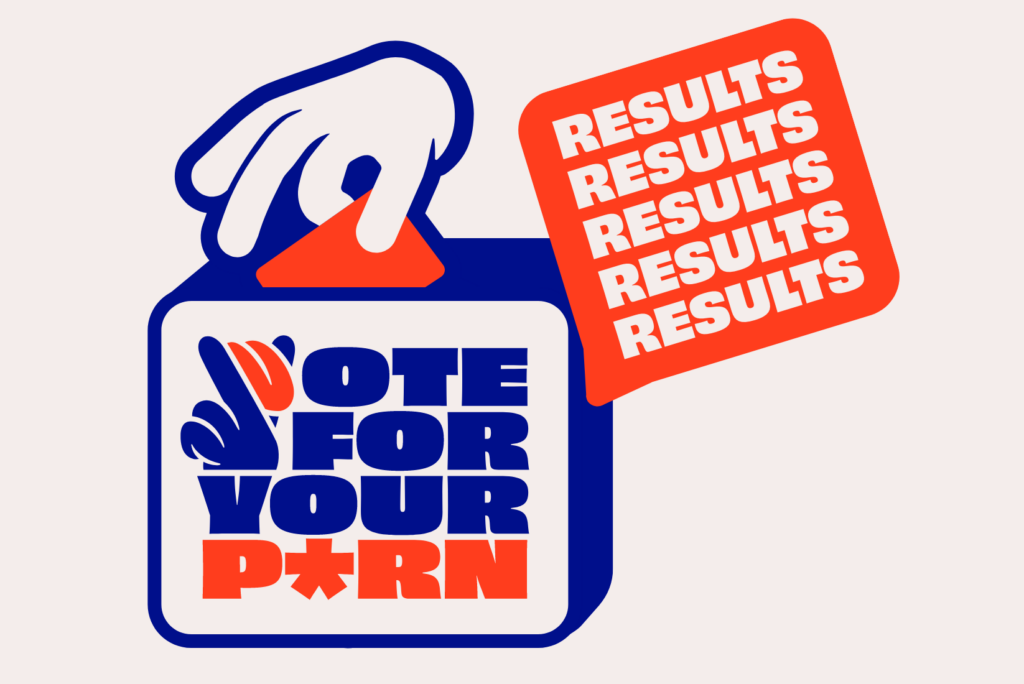Starting a company without opening a bank account. Offering online workshops but not supporting digital payments. Running a start-up without social media and advertisements. What may seem like bad business management is, in fact, a consequence of the censorship sex workers and sex-positive companies face every day. Banks and payment service providers refuse to take them on as a client. Their social media accounts are taken offline every couple of weeks. And updated terms and conditions that suddenly ban adult content can make a vital stream of income dry up overnight.
She spoke with five experts in the ‘sexual wellness’ industry, an industry that promotes better sex and sexuality with, among other things, cycle trackers, sex toys, and ethical porno. By 2020, this industry stimulated hundreds of thousands of people and took the economy to new heights. That year alone, the market for sexual wellness was estimated at 30 billion dollars, and it’s expected to grow by about 8% each year, with a prediction to reach 45.05 billion dollars by 2026. Yet, while sexual wellness gets a new (female) target group excited about destigmatised sexuality, it continues to be taboo to many investors, media platforms, and marketers.


The Financing of Sexual Freedom
CHEEX founder Denise Kratzenberg personally experienced the stigma in 2019 when she came up with an idea for an ethical, inclusive, and educational porn platform promoting sexual freedom. Getting a loan from a bank was out of the question for a company with such a sex-positive mission. And this was porn of all things? *gasp*
Denise had to rely on investors. Although many venture capitalists agreed that the porn industry could and should change, and even recognised its business potential, they didn’t put their money where their mouth was. Company guidelines were clear: sex was blacklisted. Even if the offered services or content is legal. Even if the brand dedicates itself to creating a safer and fairer (porn)industry. Charlotte: ‘For many companies, it doesn’t matter what you do or how you do it. It’s porn – in the same line with drugs and human trafficking. Whether it’s legal and ethical or not.’ The funding for CHEEX eventually came from private investors and business angels, most of whom wish to remain anonymous.
As seen in the quote Lisette Mepschen, escort and coach, experiences the same thing as a self-employed sex worker.


Sex Sells (Anything but Sex)
We’ve all seen the ad campaigns featuring piles of half-naked models making out with each other, trying to sell a pair of jeans or a suit. Or the commercials that made teenage boys themselves go through the day rocking a pungent cloud of deodorant, as their newfound scent would allegedly land them a hot, big-busted, and long-legged girl. It’s the age-old truth of advertisement: sex sells. But those who actually sell sex don’t get to plaster the streets or social media with anything similar. Advertising on Facebook, Instagram, or YouTube isn’t an option for those who preach sex-positivity. And the ban isn’t limited to porn either. Sexual wellness companies that sell sex toys or even menstrual cups experience similar troubles running paid ads, and – touting a more positive view of sex – they face challenges in finding suitable collaborative partners too. Even when brands and influencers love the product, they’re afraid of hurting their image by associating themselves with sensitive topics such as sex or pornography.
Whereas businesses rely on advertising, sex workers often build their client base on online platforms. Patreon, previously used by many erotic artists, tolerates (artistic) nudity when it’s classified as ‘adult’ and is only accessible through registration. Pornography on the other hand, was blacklisted entirely. Even Onlyfans, widely known as a place where sex workers interacted with their fanbase, threatened to ban all adult content last August. It was the OnlyFans-controversy that made porn performer and erotic creative Esluna Love realise that things needed to change. ‘I can’t be dependent on one platform or provider. If they decide to change their terms and conditions today or tomorrow, or next week, I lose everything. Nowadays, she frequently uses Fan Centro as the platform offers the Dutch payment service iDeal, a big plus as many of her followers are based in The Netherlands.


Lisette has wanted to expand her business by offering online workshops for ages, but as she, an escort, cannot use an online payment tool on her website, she has not yet been able to do so. Providers like Stripe won’t support sex workers and businesses. At the slightest suspicion of income made through sexual services, PayPal will halt disbursements. Lisette explained: ‘Because of this censorship, we can’t use the resources we need to grow and build a more stable business.’ One of CHEEX’s main payment providers stopped supporting the platform overnight, leaving thousands of subscribers without a payment method. In addition to the problems with services like these, many sex workers or entrepreneurs in sextech can’t open bank accounts in the first place. Lisette continues: ‘We’ve been perceived as a risk because there’s a lot of cash involved in the business. But the reason all this cash is involved in the first place is because we can’t open bank accounts.’
Hashtag Se+
Besides working with chat and cam services, most performers promote themselves on Instagram. Esluna: ‘I use social media to stay in touch with my audience. It’s important for me that people get to know me.’ When an erotic performer’s account is deleted, they not only lose a few photos – they lose access to their entire client list and business contacts, with all the financial consequences.
Erotic content creators and writers deal with censorship on social media more often than other creators, artists, and celebrities, even when they don’t violate the guidelines for nude photography or post similar content to other accounts. While Kardashian sisters can strut through their feed promoting diet drinks in a dental floss bikini, sex-positive entrepreneurs risk suspension with the mere suggestion of nudity or eroticism.
Esluna is currently building her fan base on social media with “approved” content. She plays games on Twitch and makes funny videos on TikTok, but her actual services can only be linked in the chat section. ‘That link redirects to a page where you must accept cookies, which links to another page and then directs them to my personal site. It’s the only way to do it.’


But why is it then that erotic performers are so much more likely to get censored on social media, even when they follow community guidelines? Many point to two US laws: the FOSTA (Victims to Fight Online Sex Trafficking Act) and SESTA (Stop Enabling Sex Traffickers Act) that passed in the US Senate on the 11th of April 2018. From that moment on, (social media) platforms could be held responsible for illegal content shared by their users. It’s a law that, according to its creators, is supposed to protect against human trafficking but is by sex workers considered a form of veiled censorship born out of prudish politics. Any suggestion of nudity or sex on social media would be flagged as a potential risk – to be deleted, in the name of ‘better to be safe than sorry.’
In just under three years, CHEEX lost several social media accounts. Instagram could be retrieved every time, only through the help of lawyers. CHEEX’s LinkedIn profile remains offline to this very day. While it seems an option to “clean up” the content by eliminating nudity, the algorithm is implacable. Anyone who writes or talks about sex is at risk of getting shadowbanned and blocked. Joy Delima, a Dutch actress and columnist, pens real and educational pieces on sex and sexuality. She recently deleted all her columns from Instagram, as it became impossible to find her account and content, which she explains in the accompanying post. Like CHEEX and other sex-positive Instagrammers, Delima has been censoring her captions for quite some time. Sex becomes ‘seggs’ or ‘se+’. Every ‘o’ in porn is replaced with a ‘0’, and an asterisk is often used in place of a vowel to veil words such as orgasm.
Stigma To Take Home
The stigma sex workers face isn’t limited to work. In some cases, sex workers have a harder time getting insurance and finding a home – or they find themselves signing custom-made clauses in their contracts. ‘My boyfriend and I had just found this new rental when all-of-a-sudden, he got a call from the real estate agent. They told him they knew what his girlfriend was up to and that there were some additions to the contract.’ Between the well-known rules about pets and deposits, an extra clause was added stating that it was forbidden to host sex parties for several people. ‘Anyone can throw those parties, but because of what I do… as if I have the time?! It’s my work, for crying out loud!’


Esluna experiences great prejudices concerning her profession: sex workers are lazy and just want to earn quick money. They don’t have a degree, have been abused, or have other problems. And what will your children think when they discover their mom did all of… that? ‘I have a degree, and I had another job when I chose this profession. I chose sex work for the diversity and freedom of being my own boss. It gives me a chance to fully express myself – my creativity and sexuality.’
Despite these varying obstacles, the sex-tech industry is as motivated as ever to create freedom and education around sex and sexuality. And that fight is about more than just sex work. Lisette: “Censorship leaves sex unmentionable. As a result, we don’t learn to communicate boundaries. We don’t explore our wants and needs. Less censorship makes for better and safer sex. For everyone.’








